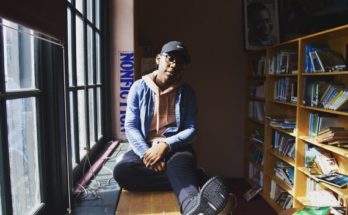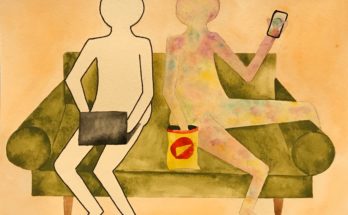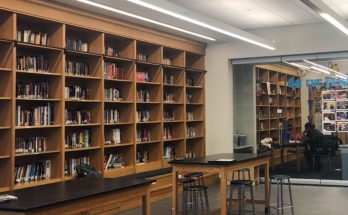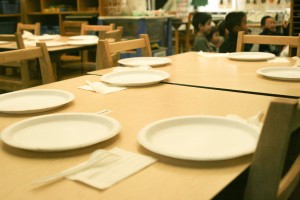
At 3 p.m. every afternoon, plastic forks and napkins are neatly set beside paper plates on the knee-high tables at Chung Pak Day Care Center in Chinatown. The four-year-olds whose job it was to set the table take their seats while the milk monitor takes her time placing a cartoon in front of each of her classmates, counting the number of students who still don’t have milk so she knows how many more to retrieve from the kitchen counter.
At Chung Pak, a brightly lit facility with children’s artwork covering the walls and Chinese New Year decorations hanging from the ceiling, responsibility and independence are an important part of the curriculum. Without being prompted, the pre-kindergarteners are expected to sign in and out of the center and greet each of their teachers as they come and go.
These are exactly the kinds of skills that Meiyi Wu, 34, is worried she will not be able to teach her two sons on her own if the center is closed in June.
Chung Pak Day Care is one of many childcare centers throughout the city that the City Council kept afloat last year when the Administration for Children’s Services (ACS) did not include them in the city’s new program, Early Learn. This program required all childcare providers to reapply for their contracts with the city. Those that did not meet new standards were not granted funding. The City Council used $58.5 million of its discretionary funds to keep some of these providers in business, but only for one year.
At this point, there is no money in Mayor Michael Bloomberg’s 2013-14 preliminary budget to extend these centers’ contracts. Even if they do stay open, centers like Chung Pak are hurting because their workers no longer receive health insurance from the city. Administrators will find out sometime before June whether or not the City Council will use its discretionary funds once again to give them another year.
Chung Pak scored an 88 out of a possible 100 points on ACS’s evaluation system last year, but director Mary Sikarevich says the center’s contract was not renewed for the 2012-2013 school year because the center is located in a wealthy zip code and the city does not feel that there is a high need for subsidized childcare. Chung Pak is just a few blocks from the spacious lofts and pricey boutiques of SoHo and Tribeca.
But the families who use Chung Pak are not living in those lofts or shopping in the boutiques. As with all city-funded childcare centers, children qualified to attend Chung Pak must come from a family of four that makes under $50,872 a year, or just over 200 percent of the federal poverty level. Eighty-two percent of Chung Pak’s families would be considered “low-income” by the U.S. Department of Education because they make under $35,325 a year.
Wu, whose three- and four-year-old sons0 attend Chung Pak, lives in Brooklyn and makes $1,000 a month as a cashier at a pharmacy in Chinatown. Three years ago, when she began looking for a day care center for her children, friends who had sent their children to Chung Pak directed her there, saying it was the best. Wu knows that if Chung Pak’s funding is not renewed, the center will most likely close after June 30 and she is certain she will have to quit her job to take care of her children. She has inquired at other day care centers in her neighborhood in Brooklyn but has been told that they are all full.
“I don’t want to sit home all day,” said Wu, who was wearing square, plastic framed glasses and cropped yellow pants. Her husband is a construction worker and makes just over $1,000 a month, so she will be the one to give up her job if necessary. “If I have the ability, I want to go to work. I don’t want to receive welfare.”
She is also worried that her children will miss out on the important skills that the professionals at Chung Pak are teaching them.
Last year, at age three, Wu’s older son, August, was still not speaking in English or Chinese. His teacher, who speaks Chinese, gave Wu regular advice about how to engage him in conversation and referred him to a speech therapist. Now he has improved so much he can occasionally translate words from English into Chinese for his mother.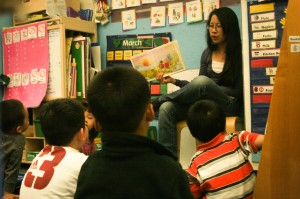
Wu hopes that her one-year-old daughter, Dora, will benefit from the same care that her sons have received.
However, even if the City Council does restore the funding, Sikarevich says the lack of health insurance and limited funds make it increasingly difficult for Chung Pak and other day care centers to deliver the services their families have come to expect.
When the city first announced its plan to implement Early Learn in 2010, early childhood education advocates were optimistic that the program would improve the quality of care children were receiving. Early Learn ensured that childcare providers would be open for 10 hours a day, have low student-to-staff ratios and teachers would get more professional development.
Teachers and administrators at Chung Pak Day Care Center did not doubt that their parent agency, the Chinese-American Planning Council, would receive a contract from Early Learn over the summer. Chung Pak has been in operation since 1993, has a state-of-the -art facility with what a smart board and a computers designed for four-year-olds and received accreditation from the National Association for the Education of Young Children in 2010. Just weeks before the center was supposed to find out if it would receive funding, ACS sent Sikarevich a letter congratulating her on operating at 103 percent capacity. Then came the notice that they would not receive a contract and a summer of battling for funds from City Council and uncertainty about whether the center would have to shut its doors.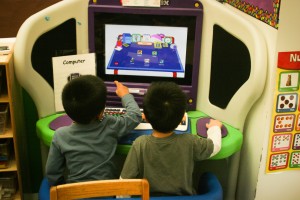
The City Council money was enough to keep Chung Pak above water, but not enough for Sikarevich to feel stable.
“I think we’re talking about a 25 percent cut,” Sikarevich said of her budget since the city launched Early Learn.
Sikarevich has two master’s degrees, one in early childhood education and another in teaching English as a second language, but she said she makes less than $50,000 a year. She also said that 10 percent of her childcare workers’ pay now goes to health insurance and the Chinese-American Planning Council pays the rest. Chung Pak has four classes, each with a lead teacher who holds a master’s degree in early childhood education, and an assistant teacher who holds a bachelor’s degree.
“I’m worried about everyone staying,” she said. “Good teachers cost money.”
One of her teachers, Alice Ma, 24, was a student here when the program was new. Ma, a graduate of Brooklyn College, said the school is an important part of the Chinatown community.
“My mom always brought me back here, making sure I remembered who I was,” she said.
At the end of a long day that included a rally at City Hall, August Wu jumped up excitedly when he saw his mother and siblings come to pick him up.
“Bye, bye Miss Li!” he said to his teacher. His teacher and his mother exchanged a proud glance, and he was out the door.

